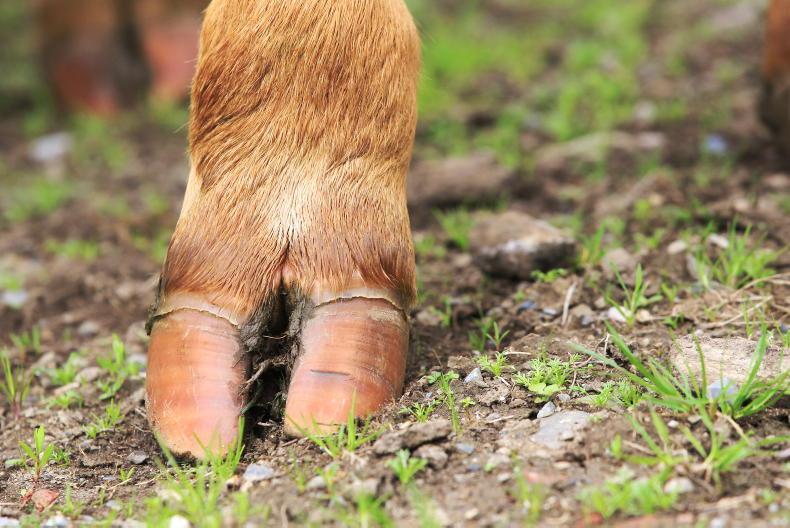The board of the Irish Cattle Breeding Federation (ICBF) has moved to reschedule the implementation date of the new beef €uro-Star evaluations from Tuesday 21 November to Tuesday 28 November.
The new evaluations, which change the terminal and replacement beef indices, have caused consternation among farmers and breed societies.
The ICBF said it will engage in further communications with both pedigree and commercial beef farmers on the upcoming changes.
“The implementation of improvements to both the terminal and replacement beef [indices] is the result of an independent technical review and consultation with a focus group,” the ICBF said on Tuesday.
“These changes stem from several years of collaborative research between Teagasc and [the] ICBF, on the back of industry feedback and international best practice.
“The last review of beef breeding [indices] in Ireland occurred in 2015, with the relative emphasis on the individual traits derived by Teagasc.
"Because of the ongoing Beef Data and Genomics Programme (BDGP), the [indices] were not updated, despite obvious changes in output prices and costs of production,” it said.
SCEP
From a Suckler Carbon Efficiency Programme (SCEP) perspective, all existing genotyped four- and five-star animals will remain eligible for the programme in their current herds, the ICBF confirmed.
“In any case, 84% of animals that are four- and five-star on the current evaluation will remain four- and five-star on the new evaluation.
"The fact that some animals will rise from three-star to four- and five-star means even more animals will become eligible, which will see more herds meeting the 2023 SCEP female replacement requirement,” it stated.
What the changes mean
The ICBF said that the fundamental improvements to the genetic evaluations include:
Updates to the economic values on individual traits to better reflect the markets.Inclusion of carbon to future-proof our breeding policy.Inclusion of new traits to better reflect the changing market requirements.Improved methodology in how animals are genetically evaluated.It said that the breeding indices globally are regularly updated to reflect the changes in output prices and costs of production.
“The updates to the economic values for all traits in both the terminal and replacement [indices] better represent the longer-term outlook on the industry as a whole. For example, carcase weight economic value has increased from €3.89/kg to €4.68/kg,” it added.
Read more
Calls for ICBF to ease farmer fears on beef index changes
ICBF fallout: 'thousands of farmers using continental genetics can't be wrong'
The board of the Irish Cattle Breeding Federation (ICBF) has moved to reschedule the implementation date of the new beef €uro-Star evaluations from Tuesday 21 November to Tuesday 28 November.
The new evaluations, which change the terminal and replacement beef indices, have caused consternation among farmers and breed societies.
The ICBF said it will engage in further communications with both pedigree and commercial beef farmers on the upcoming changes.
“The implementation of improvements to both the terminal and replacement beef [indices] is the result of an independent technical review and consultation with a focus group,” the ICBF said on Tuesday.
“These changes stem from several years of collaborative research between Teagasc and [the] ICBF, on the back of industry feedback and international best practice.
“The last review of beef breeding [indices] in Ireland occurred in 2015, with the relative emphasis on the individual traits derived by Teagasc.
"Because of the ongoing Beef Data and Genomics Programme (BDGP), the [indices] were not updated, despite obvious changes in output prices and costs of production,” it said.
SCEP
From a Suckler Carbon Efficiency Programme (SCEP) perspective, all existing genotyped four- and five-star animals will remain eligible for the programme in their current herds, the ICBF confirmed.
“In any case, 84% of animals that are four- and five-star on the current evaluation will remain four- and five-star on the new evaluation.
"The fact that some animals will rise from three-star to four- and five-star means even more animals will become eligible, which will see more herds meeting the 2023 SCEP female replacement requirement,” it stated.
What the changes mean
The ICBF said that the fundamental improvements to the genetic evaluations include:
Updates to the economic values on individual traits to better reflect the markets.Inclusion of carbon to future-proof our breeding policy.Inclusion of new traits to better reflect the changing market requirements.Improved methodology in how animals are genetically evaluated.It said that the breeding indices globally are regularly updated to reflect the changes in output prices and costs of production.
“The updates to the economic values for all traits in both the terminal and replacement [indices] better represent the longer-term outlook on the industry as a whole. For example, carcase weight economic value has increased from €3.89/kg to €4.68/kg,” it added.
Read more
Calls for ICBF to ease farmer fears on beef index changes
ICBF fallout: 'thousands of farmers using continental genetics can't be wrong'






 This is a subscriber-only article
This is a subscriber-only article










SHARING OPTIONS: